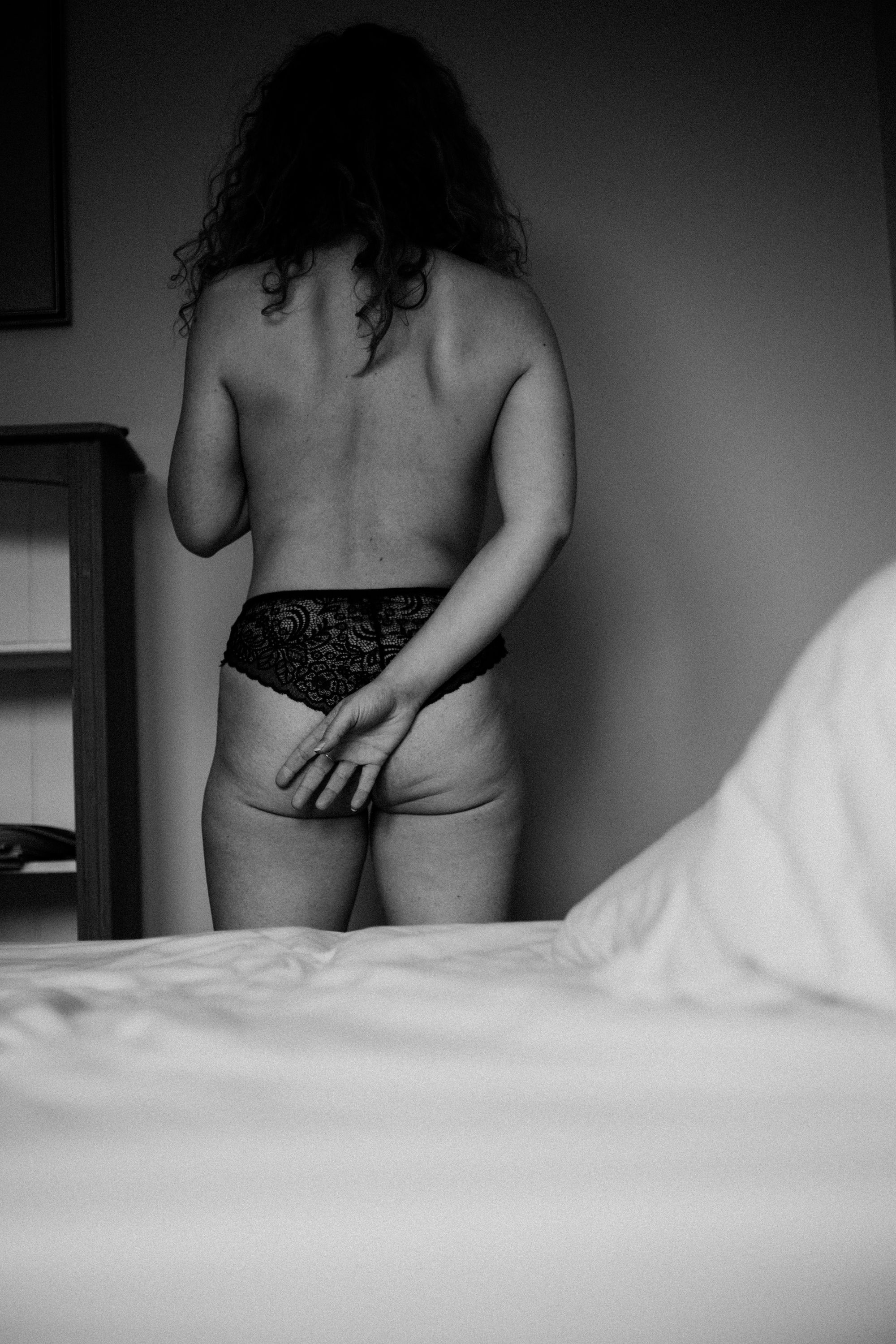Body Dysmorphia
What Is Body Dysmorphic Disorder (BDD)
My nose is too long, my boobs are too small and my butt is too big. Does it sound familiar to you? If yes, you are not alone:
Just in the US, at least five to ten million people are affected with what is called body dysmorphic disorder – a mental health disorder characterized by obsessively thinking about your perceived flaws.[1] Depending on the severity of Body Dysmorphia, people might even start isolating themselves due to their unsatisfied/disillusioned self-image.[2]
Definition - Body Dysmorphia
- mental health problem
- obsessively thinking about your looks
- anxiety about your perceived flaws



History of Body Dysmorphia
Against common expectations, body dysmorphia has by far not been discovered recently. Already in 1891 the Italian psychiatrist, Enrico Morselli, has named this mental health problem “dysmorphophobia”. Morselli described the first case of body dysmorphia as an unhappy condition in which you are “suddenly overcome by the fear of some deformity that might have developed in [your] body without [you] noticing it. “This case actually affected a man, whose symptoms were described as constantly peering in the mirror, measuring the nose’s length and examining the tiniest defects in the skin.
The first known woman with body dysmorphia was 38 years old when revealing her problems. She had very severe symptoms: she even felt unable to leave her house for five years. The French psychiatrist, Pierre Janet, diagnosed the affected woman as having an obsession with the shame of her own body. She explained to her psychiatrist Janet that she could never approach her neighbors with her hairy face because she strongly feared being ridiculed by them.
The German psychiatrist, Sigmund Freud, also had a patient with very severe symptoms of BDD. This case is even well-known as the “Wolf Man” and affected a Russian aristocrat whose life was centered on the mirror due to the imagined defects of his nose. All in all, history shows that body dysmorphia is definitely not just a phenomenon in today’s society.[3]
Causes - What Triggers Body Dysmorphia?
So far, Body Dysmorphia is expected to be caused by a mixture of three major factors – biological, psychological, and environmental factors. In fact, an imbalance of the chemical structure in your brain could trigger Body Dysmorphia. In addition, your genetics also play a role: If you have a relative with either BDD or obsessive-compulsive behavior, then your risk of developing BDD is higher as well. Traumatic experiences in the past like bullying could also contribute to Body Dysmorphia. Even personality features like perfectionism and low self-esteem can increase the risk of developing BDD. [4] On top of that, fashion brands, social media, and advertisements set idealistic beauty standards which can also indirectly lead to body dysmorphia. [5]



Symptoms - How Do You Know If You Have Body Dysmorphia?
Typically, people with body dysmorphia are obsessively concerned about one or more perceived flaws in their appearance that others would not even notice. Affected people also worry often if people talk about their looks negatively. To hide their flaws, many are very concerned about their styling, makeup, or clothes.
The exact symptoms may vary depending on the severity of Body Dysmorphia but the most common ones are the following:
Symptoms - Body Dysmorphia
- Checking features repeatedly in the mirror
- Obsessing about wrinkles, texture, and pores
- Constantly discussing the appearance with others
- Disguising one’s appearance
- Comparing oneself to “better-looking” people
- Avoidance of social situations due to one’s flaws
Subtypes of Body Dysmorphia
Unlike common assumptions, Body Dysmorphia affects both – men and women. While women often complain about being not thin enough, men are usually more interested in looking muscular. If this concerns you excessively, then experts talk about Muscle Dysmorphia. Affected people – usually men- often work out permanently or even take steroids to accelerate muscle growth.[6]



Treatment - How Do You Fix Body Dysmorphia?
The treatment highly depends on the severity of the symptoms caused by body dysmorphia. Normally, mild symptoms are treated with cognitive behavioral therapy in which you learn how to stop repeating the same unhelpful thought patterns over and over again.[7]
If your symptoms are more severe and even lower your life quality, then the psychologist might suggest taking some type of antidepressant medication called selective serotonin reuptake inhibitor (SSRI). The antidepressant, fluoxetine, is commonly used to treat BDD but it should only be prescribed after seeing a psychiatrist for therapy. The BDD symptoms will probably start to decrease after 12 weeks of taking the antidepressant.
Younger patients, however, should be very careful with taking fluoxetine due to the high risk of suicidal thoughts at the beginning of the treatment.

What Can You Do To Relieve Your Body Dysmorphic Disorder?
Not everyone has direct access to a psychologist, there are, however, plenty of helpful ways to cope with BDD yourself.
Support Groups
For instance, you could attend a support group and speak to others suffering from BDD. The members often share their own experiences with BDD and might even already have different strategies to deal with it.
Stop Comparisons
Although you might have already heard this advice several times, you should never forget to not compare yourself with others.[8]Instead, you should rather learn to compete with yourself: focus on your objectives with timelines, and then cheer on your accomplishments.
Social Media Time Limit
Especially, on social media, you can easily fall into this vicious cycle of comparing yourself with all the edited pictures. Nonetheless, these pictures do not represent reality at all. Thus, you should always recall to never compare yourself when scrolling through your feed. In this regard, it can also be very helpful to set a time limit for your social media activity. Indeed, research even proves that the more time people spend on social media, the more they compare themselves socially.[9]
Cheer Your Imperfections
Last but not least, it has to be considered that whatever feature you see as your imperfection might even be the attribute that others like about you in particular because these unique features make you stand out from other people. So, instead of being ashamed of what makes you special, you should cheer your unique features up and you should stop following the crowd of people who spends tons of time just to follow certain beauty ideals.
Annotated Bibliography:
[1] https://my.clevelandclinic.org/health/diseases/9888-body-dysmorphic-disorder#:~:text=Body%20dysmorphic%20disorder%20affects%20about,may%20not%20receive%20a%20diagnosis
[2] https://www.mayoclinic.org/diseases-conditions/body-dysmorphic-disorder/symptoms-causes/syc-20353938
[3] https://bddfoundation.org/information/more-about-bdd/history-of-bdd/
[4] https://www.nhs.uk/mental-health/conditions/body-dysmorphia/#:~:text=Body%20dysmorphic%20disorder%20(BDD)%2C,affects%20both%20men%20and%20women
[5] https://www.rush.edu/news/combating-social-media-dysmorphia#:~:text=While%20social%20media%20doesn't,BDD%20worse%2C%20according%20to%20Argumedo
[6] https://mantracare.org/ocd/bdd/types-of-body-dysmorphic/
[7] https://www.apa.org/ptsd-guideline/patients-and-families/cognitive-behavioral
[8] https://www.ramseysolutions.com/personal-growth/how-to-stop-comparing-yourself-to-others
[9] https://theconversation.com/how-social-media-can-crush-your-self-esteem-174009#:~:text=Research%20shows%20that%20the%20more,esteem%20and%20higher%20social%20anxiety

